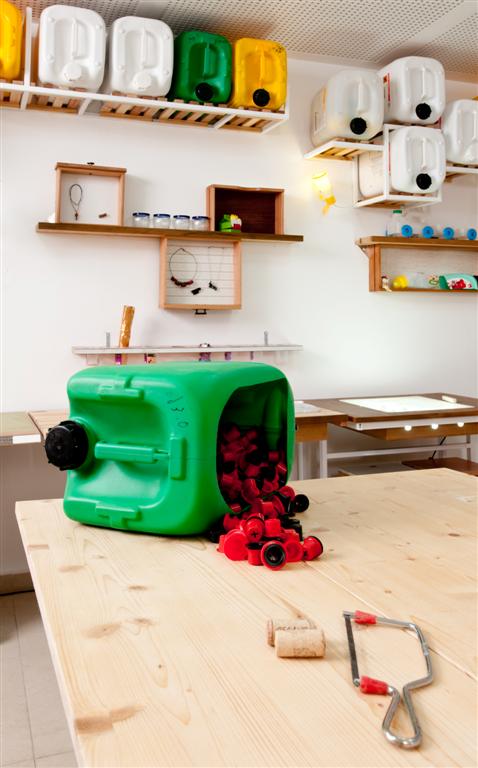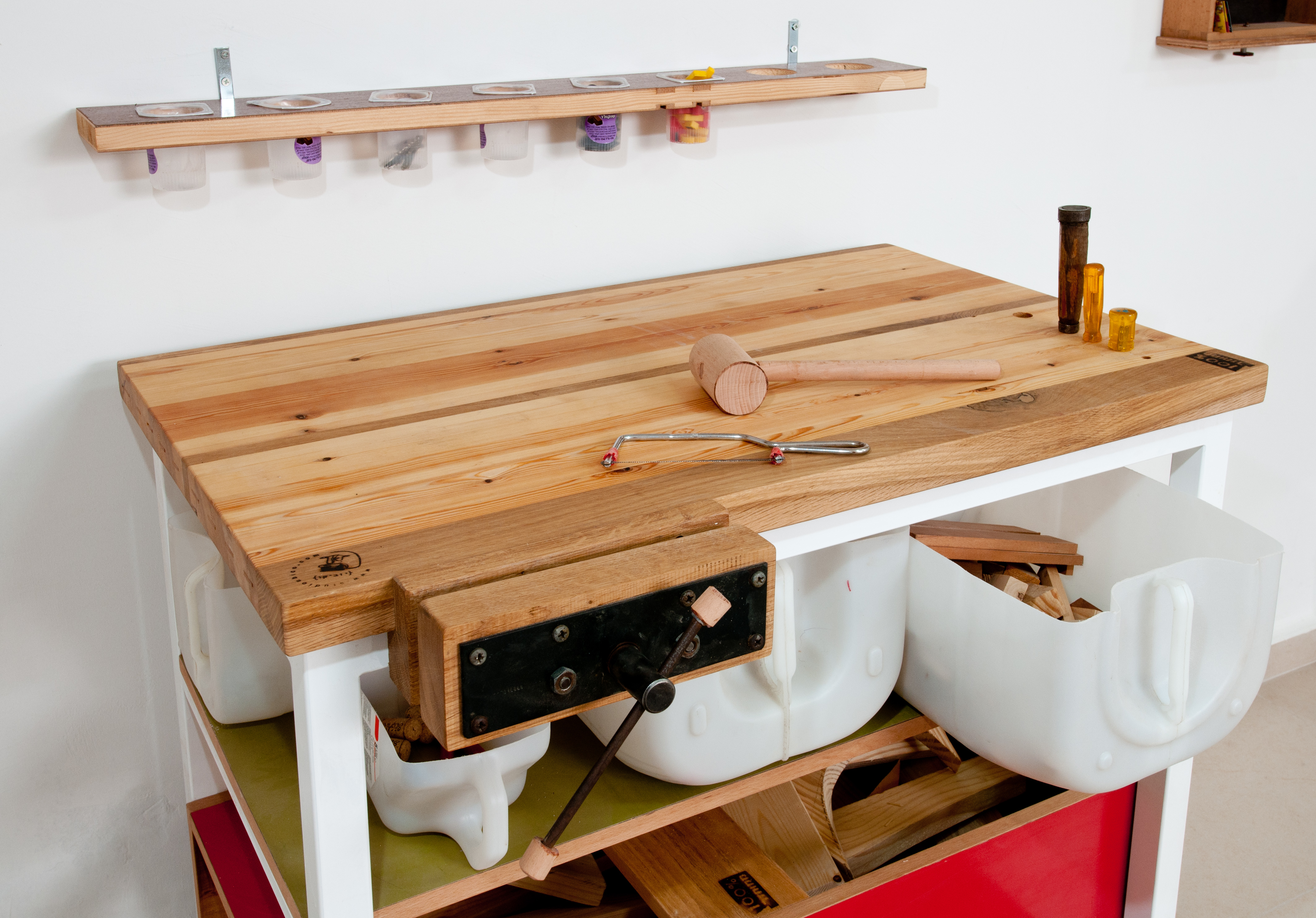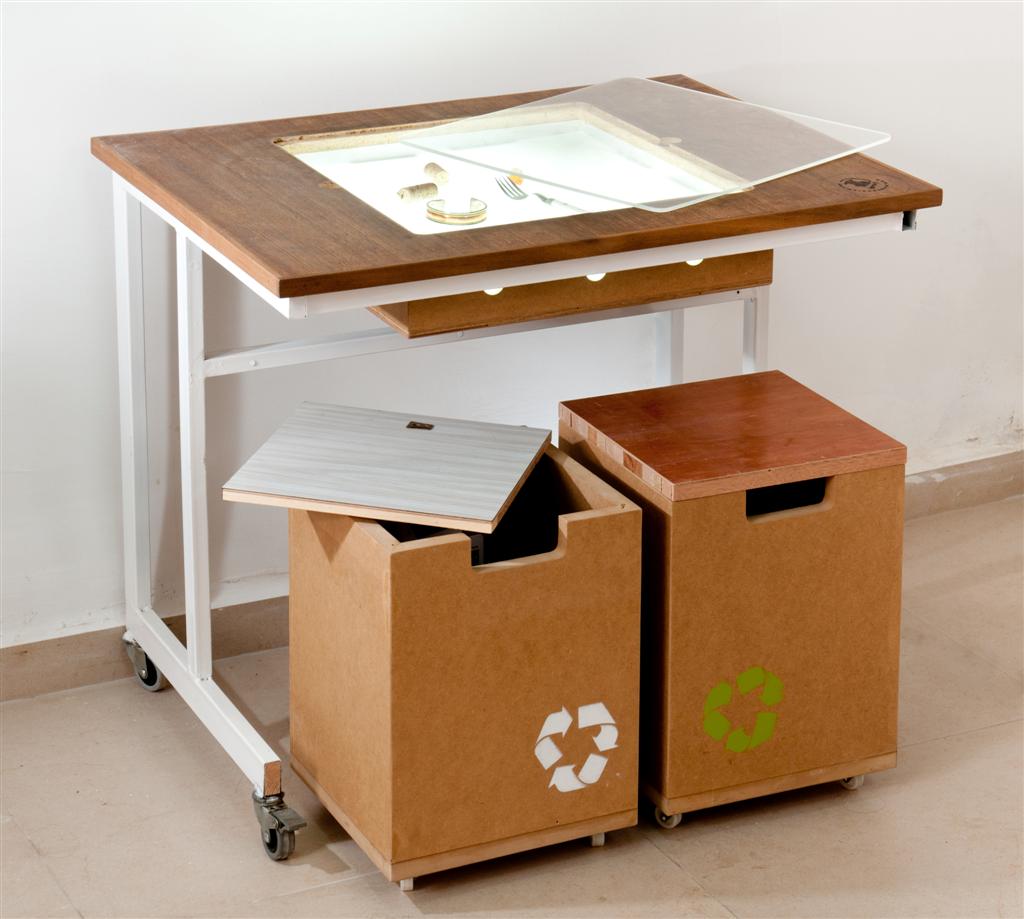Municipal educational Programs
Commissions, 2010-2011 Eilat City Council, Petavh Tikva city council
The Ayalot Educational Recycling Centre was
commissioned by the Eilat City Council and funded by the Ministry of Environmental Protection. The center was designed to combine waste storage with hands-on creative reuse facilities, encouraging children to sort waste at home and bring it to the facility where they can participate in various imaginative activities that transform discarded materials into new objects.
Built entirely from recycled and repurposed materials, the center features dedicated workstations for specific waste streams: a jewelry-making station for electronics, a woodworking bench with reclaimed timber surfaces, a magnets and metal station for younger children, a light table for shadow drawing, and a ceramic mosaic station. The principle of "visible recycling" guided the design—every element, from the furniture to the tools, tells the story of its recycled origins.
The storage system uses repurposed 16-liter containers mounted on walls and integrated into custom shelving, with a total capacity of approximately 1000 liters. These colorful containers serve both functional and educational purposes, making the sorting and storage of materials part of the learning experience. Above the workstations, shelves made from reclaimed wood and repurposed drawers display examples of possible creations, inspiring visitors with what can be achieved.
Pet'ah Tikva's city council commissioned the studio to furnish the environmental offices for a cluster of schools in the area. The project presented a unique challenge: working within a minimal budget while maintaining a commitment to sustainable design principles. In response, the studio turned to city-harvested materials; reclaimed
resources collected from municipal sources, as the foundation for the project. the studio transformed salvaged materials into functional, durable pieces including a central meeting table for collaborative discussions, two dedicated worktables for daily operations, and a custom library unit for educational resources and documentation. The result is a functional workspace that not only serves the practical needs of the environmental office but also embodies the
circular economy principles the office promoted.


Photography: Sahar Tamir
![]()
![]()
![]()
![]()
![]()




